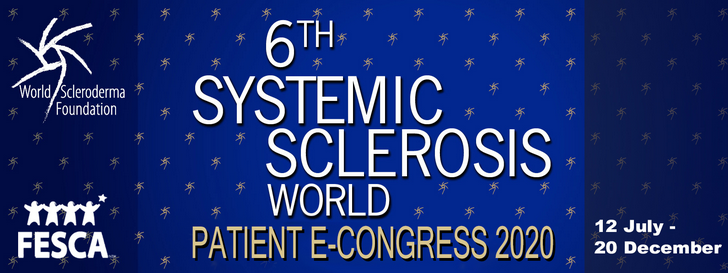Verschiedene Videos – u.a. mit Dr. Foeldvari – zum Thema ACR finden Sie unter diesem Link:
Sie benötigen einen DocCheck-Zugang
Category: Nachrichten und interessante Infos
Aufgrund der aktuellen Verfügbarkeit der beiden Impfstoffe rechnen wir nicht vor dem Frühsommer mit einem möglichen Impfangebot für Rheumapatientinnen und -patienten ab dem 16ten Lebensjahr. Die GKJR wird die Information zur COVID-19 Impfung rechtzeitig aktualisieren.
Category: Nachrichten und interessante Infos
Empfehlungen der Deutschen Gesellschaft für Rheumatologie e.V. (DGRh) für Ärzte und Patienten
Category: Nachrichten und interessante Infos
Category: Nachrichten und interessante Infos
Im Rahmen des diesjährigen Welt Rheuma Tag 2020 fanden u.a. diese Vorträge statt: (mehr …)
Category: Nachrichten und interessante Infos
Wiederkehrendes Fieber und Bauchschmerzen sind die meist beschriebenen Symptome des familiären Mittelmeerfiebers (FMF), das zu den autoinflammatorischen Erkrankungen gehört. Das bedeutet, dass im Körper sozusagen „von selbst“ Entzündungen entstehen – ohne eine vorherige Ansteckung mit Krankheitserregern.
Weiterlesen: www.autoinflammation.de
Category: Nachrichten und interessante Infos
Aktuelle Handlungsempfehlungen der Deutschen Gesellschaft für Rheumatologie e.V. für die Betreuung von Patienten mit rheumatischen Erkrankungen während der SARS-CoV-2/Covid 19-Pandemie
Aktuelle Handlungsempfehlungen der Deutschen Gesellschaft für Rheumatologie (PDF)
Category: Nachrichten und interessante Infos

Invited speaker for the juvenile patient session Dr Ivan Foeldvari held a session about
Juvenile localised scleroderma and juvenile systemic scleroderma FESCA (PDF)
Category: Nachrichten und interessante Infos
Results of the Juvenile Scleroderma Workshops in Hamburg, Germany
Voice 2020 Spring Outcome Measures and Assessment in Juvenile Scleroderma (PDF)
Category: Nachrichten und interessante Infos
